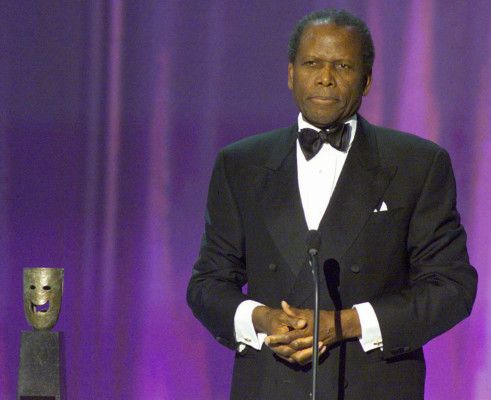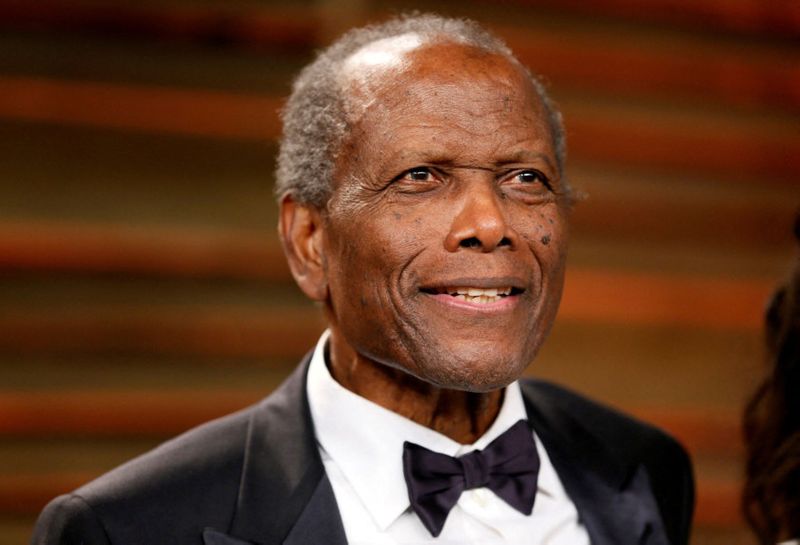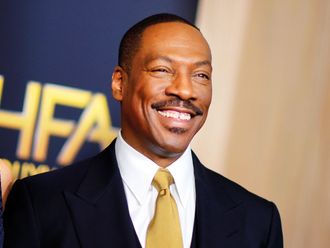
As a trailblazing actor to generations of Black performers in Hollywood, Sidney Poitier often spoke about his larger off-screen role.
Poitier, who died Thursday at the age of 94, entered the film industry at a time when portrayals of African Americans were generally stereotypical. But Poitier, who refused to play such caricatures, emerged as a matinee idol, an Oscar-winning actor and one of the most potent and graceful screen presences of his time, paving the way for countless who followed him.

In interviews and in his 2000 autobiography, ‘The Measure of a Man,’ Poitier spoke and wrote about the hardships, responsibilities and importance of his historic ascent in Hollywood. Here are excepts of Poitier in his own words through the years.
———
“There was almost no frame of reference for us except as stereotypical, one-dimensional characters. ... Not only was I not going to do that, but I had in mind what was expected of me — not just what other Blacks expected but what my mother and father expected. And what I expected of myself. ... To walk through my life as my own man.” — From a 2000 interview with Oprah Winfrey.
“OK listen, you think I’m so inconsequential? Then try this on for size. All those who see unworthiness when they look at me and are given thereby to denying me value — to you I say, I’m not talking about being AS GOOD as you. I hereby declare myself BETTER than you.” — From his memoir.
“I felt very much as if I were representing 15, 18 million people with every move I made.“ — From his memoir.
“It’s a choice, a clear choice. If the fabric of the society were different, I would scream to high heaven to play villains and to deal with different images of Negro life that would be more dimensional. But I’ll be damned if I do that at this stage of the game.” — On playing heroic, altruistic characters, from a 1967 interview.
“I can tell you what I think the flak was about. For a long time, I got all the jobs — one picture after another after another. And the roles I played were very unlike the average Black person in America at the time. The guy always had a suit, a tie, a briefcase! He was a doctor, lawyer, police detective. Middle-class. The characters weren’t reflective of the diversity of Black life. I don’t know that I wouldn’t have had resentments myself, had I been an actor on the outside looking in.” — On criticism of his on-screen persona, from a 1995 interview with the Washington Post.
“In the original script, I looked at him with great disdain and, wrapped in my strong ideals, walked out,“ he wrote. “That could have happened with another actor playing the part, but it couldn’t happen with me.” — On returning a white man’s slap in 1967’s ‘In the Heat of the Night,’ from his memoir.
“I was happy for me, but I was also happy for the ‘folks.’ We Black people had done it. We were capable. We forget sometimes, having to persevere against unspeakable odds, that we are capable of infinitely more than the culture is yet willing to credit to our account.” — On becoming the first Black actor to win an Oscar in 1964, from his memoir.
“I was part of an influence that could be called paving the way. But I was only a part of it. I was selected almost by history itself. Most of my career unfolded in the 1960s, which was one of the periods in American history with certain attitudes toward minorities that stayed in vogue. I didn’t understand the elements swirling around. I was a young actor with some talent, an enormous curiosity, a certain kind of appeal. You wrap all that together and you have a potent mix.” — From a 1992 interview with the Times of London.
“Those of us that go before you glance back with satisfaction and leave you with a simple trust. Be true to yourselves and be useful to the journey.” — Accepting the AFI Lifetime Achievement Award in 1992.











